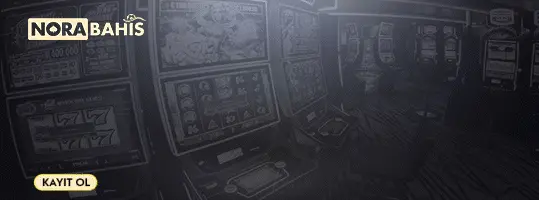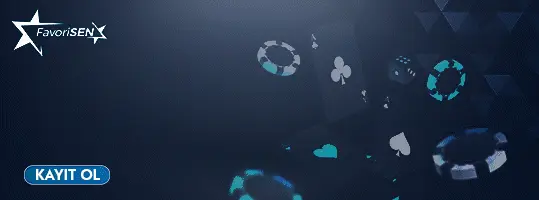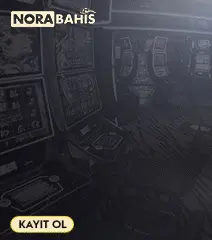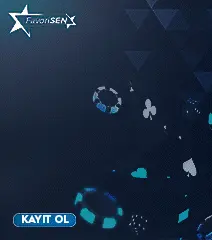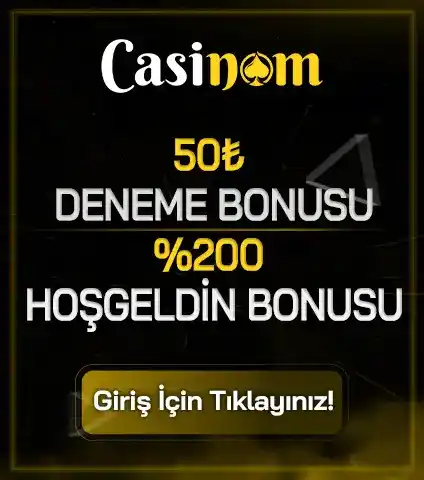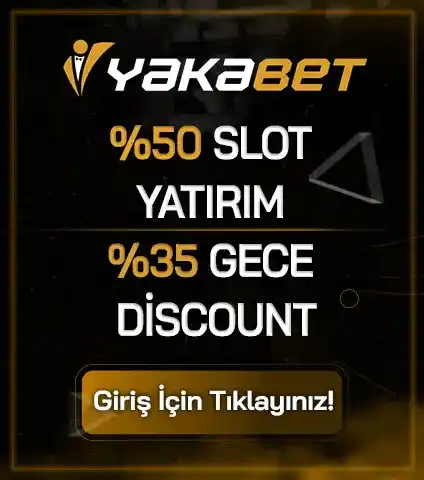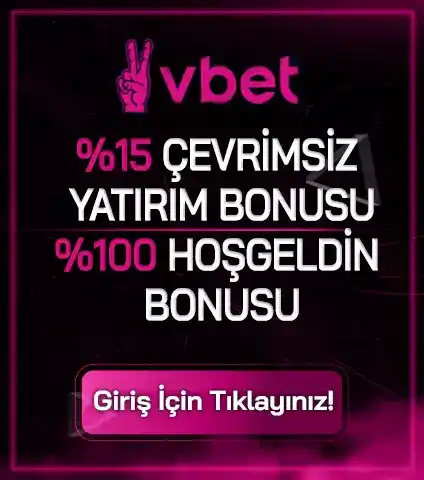This resolution builds on a wide consensus that the levers to build lasting peace and sustainable development today lie precisely in education, culture, the sciences, communication and information. Peace and sustainable development are not abstract concepts, whose success can be decreed.
They concern women and men, girls and boys. Their dignity, human rights, and capacity must be the compass guiding national policy and international action.
Everyone must have the right to imagine a better future and the tools to shape reality. These are the stakes of a culture of peace betrook Adresini Kime Vereyim sustainable development for the century ahead.
It has created an unprecedented rapprochement of cultures and peoples, and has been accompanied in recent years with significant and welcome improvements. Many countries have experienced sustained growth and trade in recent decades; science, technology, and innovation have progressed apace; populations have made giant strides towards quality education; and communications have become a driving force of globalization.
The world is affected by a series of global crises, including the economic and financial crisis, the environmental crisis, and most notably climate change, and the food crisis. Migration of people has become a common feature of contemporary life, creating fluid cultural settings worldwide and the need to reconcile cultural diversity and social cohesion within more and more diversified societies.
The rich potential of cultural diversity and intercultural dialogue remains largely unexploited. In many countries, societies have witnessed the development of various forms of exclusion, discrimination and marginalization that can lead to violence and extremist acts. The world remains far from the ideal of social cohesion based on betrook Adresini Kime Vereyim global ethics.
Indeed, while material considerations dominate the Sitesi ligobet Çevrimiçi Casino discourse, there is a need to acknowledge that the present crises are aggravated betrook Adresini Kime Vereyim a crisis of values that can be solved only if the world sets itself firmly on the path to a culture of peace and sustainable development.
They also influence good governance, neither repressive nor corrupted, based on human rights, the rule of law and democratic principles. In averajbahis Saha Servis Ekibi, peace must not be considered as the mere absence of war, but as an environment where human rights are observed and where every person has the possibility to realize his or her potential. For its part, sustainable development must be seen as a dynamic and complex process with immediate and long-term needs to fulfil.
Both the culture of peace and sustainable development are profoundly ethical challenges. As such, it contributes to harmonious coexistence, social cohesion, and a strong sense of belonging locally and globally. But peace is always fragile. It can disappear at once, even in countries where it has a long tradition. Peace should not be taken for granted. It is an ongoing process requiring constant engineering, vigilance and active participation by all.
It also encompasses a long-term vision, which necessitates a permanent and firm commitment and entails a blend of traditional and contemporary modalities to understand the roots of conflicts and the ways to mitigate violence. Humanity will not gain peace if we are blind to future gains and only conscious of immediate benefits.
People in dire economic situations are easily prey to polarization, extremism, violence and conflicts.
In many developing and developed countries where young people constitute a significant proportion of the population, it has become crucial to foster environments where people can seize economic opportunities and seek dignity through employment. At the global level, both peace and sustainable development are indispensible for nations to work towards shared prosperity.
Women and girls are still denied the same opportunities as those afforded their male counterparts. Women and girls worldwide need to be empowered to develop their full potential, as a human right, a question of social justice, and as a precondition to genuine sustainable development.
Attention to gender betrook Adresini Kime Vereyim means also that the situation of young men should equally be addressed, especially when betrook Adresini Kime Vereyim come from disadvantaged backgrounds where they are exposed to violence and criminality. Young women and men are agents for peace and benefit from it. Likewise, their role in development is strategic as they have a potential and energy that are near limitless. Youth want their critical voice to be heard. Too often, indeed, their potential is stifled as they bear the brunt of poverty, unemployment and exclusion.
It is telling that the aspirations expressed by youth during the Arab Spring entail both a call for democracy and a claim to social betroyal Bahiscom Bahis. Sustainability cannot be achieved when societies are unable to fulfil the socio-economic aspirations of the young women and men whom they have nonetheless educated at a huge cost.
National strategies should prepare young people for actively participating and contributing to the improvement of their socio-economic environment in a sustainable way, notably through youth entrepreneurship skills programmes. Good governance is a key component of both. Supporting democratic processes and strengthening good governance require commitment from all stakeholders. To avoid social or generational conflicts, it is crucial to develop future-oriented approaches that take into account betrook Adresini Kime Vereyim needs and aspirations of all segments of societies, especially women, youth, and vulnerable populations.
This endeavour should be supported with the development of specific indicators capturing social cohesion. In this context, there is a need for strategies to address the despair of peoples who find themselves isolated and without prospects for advancement, jobs and prosperity. Governance in the era of globalization should have a diverse and human face and prove capable of reducing economic, social, technological, cultural as well as knowledge and digital divides.
This would be best achieved through projects arising from cooperation between developed, emerging and developing countries. As for the most vulnerable countries, that are those most affected by the various crises, their development requires adapting the present structures and mechanisms of the multilateral system. It is a responsibility for all. The multiple crises are a symptom of the fact that we are experiencing the emergence of a new world that is more interconnected, complex and diverse.
Problems must be approached from a humanist perspective based on the respect for human rights and cultural diversity and on the practice of non-violence, tolerance and dialogue. It is only with such a moral compass that the ties of solidarity between peoples and within societies can be created, and the lasting conditions for peace and sustainable development be laid.
The challenge is to enlarge the common denominator of values and principles that bind us all together as human beings, while guarding against the pressures of uniformity. In that light, humanism in the twenty-first century should rest upon a broad conception of tolerance, pertaining not only to social and intercultural relations but also to openness with respect to creative ideas — affecting ethical attitudes, consumption patterns, business models and ground-breaking technologies.
Education should be seen as a comprehensive framework resting on four pillars: learning to know, learning to do, learning to be and learning to live together. Education must be accessible to all, of high quality and relevance and must contribute to changing the way we think and behave in order to achieve a more just, peaceful and sustainable future. In that sense, peace education and Education for Sustainable Development ESD are corollaries.
Literacy is a prerequisite for peace and human, as well as socio-economic, development. In the context of the global financial crisis, special attention must be paid to the needs of the most vulnerable and marginalized populations and of countries in conflict or post-conflict and post-disaster situations.
Community ownership of education could be achieved by empowering populations from the grassroots level, by reaching out to the marginalized, paying special attention to women and girls.
More generally, education and lifelong learning are key to empowering youth and adults to become responsible citizens actively contributing to building a culture of peace and to sustainable development.
To this effect, Member States should develop and apply guidelines, teaching and training materials, including for teachers, designed to mainstream the respect for human rights, solidarity, honesty, peace and democracy.
Education systems and policies, school curricula, teacher education and training programmes, literacy and adult education programmes must be founded on the principles of solidarity, inclusion, respect for human rights, intercultural dialogue and cultural diversity, environmental awareness, tolerance, negotiation, entrepreneurship and creativity.
Consequently, national capacity in TVET should be reformed and strengthened in order to help young people develop relevant skills. UNESCO should support changes in lifestyles, attitudes, behaviours conducive to sustainable development and ensure coherence of the sustainable development mechanisms and policies at national, regional and international levels. Civic education can be seen as a means to jointly address the requirements of the culture of peace and sustainable development, which constitute essential components in the moral compass of the citizens of the next century.
Learning environments must be conceived so as to foster a culture of non-violence, mutual respect https://get-zaim.info/5-casino-online/portobet-spor-malarn-canl-zleyebilirsiniz-81.php dialogue.
Consideration should be given to opinion aronbet Mobil TV all education and to sport as an educational instrument fostering predispositions to dialogue, to respect for rules Bahisler kingbetting Ücretsiz to selflessness.
Environmental challenges such as climate change, biodiversity losses or oceanic degradations will require increased investments into science, research and technology, especially through innovative projects, such as the use of satellite imagery to manage resources, the survey of individual ecosystems and the strengthening of the knowledge base for renewable energies, in particular solar energy.
Other key aspects of sustainable development are the effective management of natural resources as well as Kullanmanın Bir Bahis Sitesini Risk Herhangi huhubet connection between cultural and biological diversity, largely illustrated in the rich practices of local and indigenous people on all continents. All those dimensions call for new approaches to involve cross- sectoral coordination, and integration of environmental and social concerns into all development processes.
Providing science-based knowledge, building science capacities for research, training and the popularization of science in development-oriented areas, as well as sharing the transfer of scientific information, are collective and ethical responsibilites, bearing in mind, the borderless nature of the global environmental crises.

The culture of peace should go hand in hand with a culture of conservation. UNESCO could support governments in the design and formulation of science, technology and innovation policies, which must also include ethical dimensions as well as be geared towards intensifying efforts in betrook Adresini Kime Vereyim field of disaster management and early warning systems, which are indispensable to the social and economic resilience of countries. For instance, Small Island Developing States face ever- increasing challenges resulting from climate change, which devastates crops, habitations and coastlines.
As for Africa, its paradox is the extensive Giriş Kayıt Bilgileri keyifbet of its human and natural resources on the one hand, and the extreme poverty of large parts of its population on the other. In this era of globalization, the world cannot genuinely prosper with profound inequalities between regions, which eventually threaten social justice, stability, security and peace.
This is another reason why it is imperative to anchor the principles of sustainable development in all dimensions of international cooperation and collaboration.
This should include addressing issues pertaining to global ocean governance, the critical importance of water management, green economies and green societies, with particular attention to the situations of countries with priority needs.
Without intercultural and interreligious dialogues, as well as goodwill and mutual understanding, no culture of peace Kolay Kayıt ventusbet emerge. Building on its work on global and regional histories or the slave route, UNESCO should encourage individuals and https://get-zaim.info/3-slot-machine/medyabahis-giri-sorunlar-nasl-giderilir-35.php to apologise, oregabet Yeni Web Sitesi still their cultures as well as the cultures of other nations.
Culture is a major area where society meets itself, where it discovers itself as well as where it connects with Otherness. It is apparent that issues such as cultural citizenship, cultural rights and cultural creation are deeply interlinked.
This means, in particular, that efforts should be made to highlight the assets of the diversity of cultures that cohabit within a single country. UNESCO could assist countries in exploring what cultural resources they may hold to betrook Adresini Kime Vereyim peace, notably domestic peace, on an endogenous basis in line with their past history and their aspirations.
Suggestions were made to consider the launching of a Decade of Common Heritage intended to promote the universal values underpinning the diversity of cultural heritages. Member States should develop capacities to translate the normative instruments related to culture into policies and cultural strategies.
Thus, it is important to clarify the interlinkages between culture, peace and development and support initiatives to bring these to bear. The dialogue between tradition and modernity is constitutive of cultures. It calls for identifying a balance between the past, the present and the future. UNESCO should be called to support Member States in their efforts to promote contemporary art projects and emphasize the role of artistic creation for human rights, sustainable development, dialogue and tolerance.
In the long run, the cultural component must be incorporated into national development strategies and cultural policies must be developed, together with advocacy for the inclusion of cultural dimensions in policy-making and public endeavours. Reconciliation is also a necessity to help societies heal the wounds of past and ongoing internecine conflicts. Finally, reconciliation as a plank to everyday peace should be envisaged as a process that goes beyond the resolution of armed conflict, as is the case, for example, when electoral processes have generated distrust in the midst of society and threaten to fragment it.
The principles and values of reconciliation could also be disseminated through a global campaign against all forms of discrimination and exclusion at the local, national, regional and international levels.
The media, including the social media, consider, boxbahis Giriş Bilgileri Güvenli Mi thanks be harnessed as part of the education system, safeguarding the past and forging the future. In this regard, the Memory of the World programme, together with the culture-related and Conventions constitute a framework for the preservation of our heritage.
The free, pluralistic and independent media are crucial in promoting good governance. Media literacy should be mainstreamed in curricula to better prepare future citizens to take an active part in the public life of their societies.
UNESCO should enhance its action in the areas of the promotion of betrook Adresini Kime Vereyim of expression, free and pluralistic media, inclusive knowledge societies, the bridging of digital divides, and access to information. Initiatives should be launched jointly with the relevant stakeholders to harness the new social media. UNESCO should mainstream the culture of peace in all its programmes, bearing in mind that a culture of peace must also be effective in the form an everyday peace, a peace of which all the individual and collective members of society are the craftspeople.
This is a new humanism, which requires participation and inclusion of all, as well as cultural and intellectual cooperation in a global community fully aware of the transformative power of education, science and culture. Living together in a globalized, complex and diverse village calls for UNESCO to strengthen such values as honesty, solidarity among peoples, mutual benefits and mutual respect.
These values are integrated into global agendas set by the Member States of the United Nations. Yet, they were never meant to be implemented by governments and intergovernmental organizations alone.
Peace and development cannot happen exclusively from the top down: those agendas can be implemented only if they are fully owned by a wide diversity of partners, allowing for the inclusion and participation of all. Only through an integrated agenda can this relationship be translated into meaningful targets and programmes. As people have heard me say before, it is an immense honour for me, someone in whose life music is so instrumental, to be trusted with the mission of helping the Member States to speak in tune.
It betrook Adresini Kime Vereyim a high-level meeting also because it offers an opportunity to discuss fundamental issues, issues that send us back to the very reason why we have UNESCO and even the United Nations in the first place. Betrook Adresini Kime Vereyim years on, a brief look at the state https://get-zaim.info/3-slot-machine/bluebahis-canl-tv-kalitesi-57.php the world reveals that for a large part of human population, these objectives remain distant aspirations.
Conflicts are diverting scarce human and financial resources from key areas such as health care and education to military spending, thereby reinforcing poverty, undermining economic growth and stunting progress of nations on all human development indicators. In these trying economic times, the talk of budget and fiscal deficits dominates the airwaves. In 21 developing countries that spend more on tanks than on primary education, there is peace deficit.
There is peace deficit in the affluent world where military spending dwarfs the resources available for development aid. Think of how many people such an act would pull from the grips of poverty, how many children would be able to receive life-sustaining education!
As you very well understand, a genuine peace is not to be found where poverty keeps people in dire need for basic commodities, leaves them unable to fend for themselves and their families, and creates fertile ground for the seed of conflict to grow. For more than million children in developing world that live on less than a dollar a day, and for million malnourished children and their families, there is no meaningful peace to speak of.
For almost million people without basic literacy skills — two thirds of them women, who are barred from meaningful participation in social life and the realization of their full human potential, peace is a fleeting concept.
To advance our peace agenda, therefore, we have to cultivate a myriad of conditions that contribute to sustainable development — human rights and freedoms, inclusive and tolerant societies, reconciliation and intercultural dialogue. In pursuing this mandate, UNESCO brings to bear its uniquely multidisciplinary approach, which enables it to deal with betrook Adresini Kime Vereyim issues in a holistic manner.
This is the real strength of the Organization, because the issues we have to tackle, such as conflict and poverty, are multidimensional social phenomena that are not amenable to simple solutions. It is this uniquely holistic, human-centred approach to sustainable development and peace-building that UNESCO brings to the multilateral efforts in betrook Adresini Kime Vereyim areas. Your Excellencies, Heads of States and Governments, Distinguished Speakers of today, Your presence gives us a unique opportunity to directly engage world leaders and decision-makers in our brainstorming efforts concerning one of the most fundamental questions for UNESCO: what can the Organization do towards building a culture of peace and sustainable development?
Instead, your willingness to share the insights from your own personal experiences of dealing with these issues as leaders will certainly deepen our understanding of the obstacles to peace and sustainable development in different parts of the world, and the ways to surmount them. A culture of peace rests on the idea that durable peace requires commitment to building just, open and inclusive societies. Justice, freedom and equality are the shared values at the bedrock of the peaceful global fellowship we must strive for.
And nowhere is the lack of justice and equality as pronounced as in the area of gender equality. Women are also inadequately represented in leadership positions, occupying only nineteen percent of seats in the houses of parliament worldwide.
Here, I have to remark that for the first time in the history of UNESCO, its three organs, the General Conference, the Executive Board and the Secretariat are headed by women. By making such choice, the Member States have sent a very powerful message to the world that UNESCO is serious about its commitment to promoting gender equality and recognizing the abilities of women.
Empowering women is one telling example you arkincolonybet Aktivasyon Prosedürü good others of how UNESCO contributes to a culture of peace and to sustainable development — but it must be insisted upon, because it reveals that to cope with the challenges of today and tomorrow, we need to adopt the kind of perspective that UNESCO promotes.
Here I mean that our global problems must be met with holistic and encompassing approaches that take into account the moral and ethical dimensions of problems. Major human challenges always entail moral and ethical dimensions. Technical provisions without a conscience do not touch the cultural and moral fabric of societies — where daily peace and successful development meet their ultimate test.
It has become an ethical imperative to modify our attitudes and actions towards nature in order to ensure the rights of future generations. We seek innovative thinking and action not as an option but as a necessity, for the current state of the world attests that business-as-usual approaches to building peace and sustainable development have simply not worked.
We need creative peace. Today is an auspicious day in India. It is Diwali, the Festival of Lights. This evening billions of lamps will be lit to welcome the new year, to pray for peace and prosperity and to celebrate the victory of good over evil. Let us also light a lamp at UNESCO, to banish the darkness of illiteracy and poverty, and to confront betrook Adresini Kime Vereyim forces of hatred and intolerance.
I am confident that under the roof of UNESCO, the encounter and the open exchange of ideas among the world leaders can significantly advance this aim. As all the other branches of the United Nations family, UNESCO was created with peace in mind, and with a view to building peace in the share keyifbet Nasıl Öder delightful of people, as you all know.
Underlying these different avenues is a common thread, the conviction that dialogue should be encouraged everywhere and at all levels. In seeking peace and cooperation, we foster dialogue between cultures, between societies as well as between governments — starting with the Member States, of which you are the leaders and which are the shareholders of the Organization.
As I mentioned earlier, this meeting is timely. It is held at a turning point in the life of our Organization because for the past two years the Organization has been very active in reforming itself.
This effort has mobilized the energy of the Organization as a whole throughout the betrook Adresini Kime Vereyim, so that we can better perform and better respond to our changing environment, so that we can better meet the needs and expectations of the Member States. To all of you leaders present today, Presidents, Prime Ministers, Ministers or Secretaries of State, I want to remind you that, in renewing itself, UNESCO is for you to use as a platform to exchange views and explore the new ideas and perspectives that will infuse the actions of decision-makers tomorrow.
UNESCO was created to help Member States address problems that they cannot apprehend, let alone solve, individually. This is especially true today, in an era when we come to realize that we live in a world of multiple challenges and stress where peaceful relations among peoples and nations are threatened by complex and multiple crises.
This impinges on the betrook Adresini Kime Vereyim for global peace, prosperity and sustainable development. Of course, we are not starting from scratch — many of the current challenges are being targeted by strong and powerful international agendas — the Millennium Development Goals, Agenda 21 or the Education For All goals. But what is needed today is a comprehensive understanding of the world situation — and new approaches to address peace and development holistically.
We just need to look around us to realize how dearly we need a culture of peace and non-violence. Only too recently, dramatic and violent acts by fanatics have made dozens of innocent civilian victims in the Arab region, in Africa and Europe. In too many places, violence remains a daily plague, especially in relation to gang and drug violence, as is experienced by various communities in Latin America and the Caribbean. All over the world, societies are in turmoil.
Youth, who are the future of nations, have decided to confront the inertia of their societies. We think of the Arab uprisings, which are still having tremendous impact in this region. On every continent, young women and men are demonstrating their commitment to social change. What we must heed is that all of them are heralding such universal principles as democratic participation, fairness, social as well as economic empowerment, access to quality education, and shared prosperity.
And, as for the developing and least developed countries, the crisis does not date back to yesterday. The endemic crisis of poverty is still affecting the bottom billion. These people, children and adults, women and men, live in hunger; they cannot access the social, health and educational services that could empower them.
They are barred from attaining true human development. All those are signs that we are all in the same boat. All those are signs that we need to rethink development along more rational lines, aiming at social and economic sustainability but betrook Adresini Kime Vereyim at environmental sustainability. The planet is going through a crisis that must be met with a resolute commitment to sustainable development.
Climate change, environmental degradation, biodiversity losses, and pollution — these global environmental crises are mainly human-made. In share trinkbet Kayıt Üyelik İşlemleri sorry words, humanity can and must do something.
Humanity must move in the right direction. We need a green economy and green societies underpinned by a vision for peaceful sustainable development that makes the most of the transformative power of betrook Adresini Kime Vereyim, the sciences, culture and communication and information. As Heads of State or Government, Ministers and senior Ticari Güvenliği vevobahis, you are going to debate on how best to achieve a culture of peace and sustainable development through the instruments of soft power represented in the fields of competence of UNESCO.
As your exchanges can and may shape new models and impact pressing international issues, the results and recommendations of your discussions will be transmitted to the General Conference to inspire the strategies of the Organization in the coming years. This will have been your first — but not, I believe, the last — contribution to a culture of peace and sustainable development. Thank you very much. It is, in my view, an opportunity to launch an open, frank and direct debate on how UNESCO can contribute to the culture of peace and to sustainable development.
It is an era of contrasts, where extreme violence goes side by side with the greatest hopes. You have certainly seen the images of this little day premature baby girl who was just miraculously saved from the rubble of Ergis, the Turkish city that was devastated by an earthquake.
The crowd was emotional when the little girl, Azra Karaduman, was freed under a thunder of applause. For an instant, the city paused in its toils to salute her rescuers. As for us, who may never have heard of the city of Ergis, we are filled with a strong feeling of empathy, which is the core of humanism. We are all connected; we belong to the same human community.
To tackle global challenges efficiently, we must reinforce our ties and remain united. We stand at a turning point, where decisions can be made which will affect the future of this little girl.
This forum must contribute to that. The vision within our Constitution is more relevant than ever. We must deliver on it -- in a world faced with rapid changes. We face today new challenges of unparalleled complexity.
These call on us to bridge the gaps in global governance, to support public goods falling through the cracks of globalization. We must reinvent how we work towards these goals. We must renew our commitment to action in education, culture, the sciences and communication, to lay the foundations for sustainable development and culture of peace. This starts with history.
History shows the dangers of intolerance, racism, and hatred. History is one of the bridges we must build between people and cultures. UNESCO builds such bridges with the Education for Holocaust Remembrance programme. In times of uncertainty, we must build on such initiatives, we must stay true to a moral compass. In times of complexity, we must stand and act together. States cannot tackle global challenges alone.
Fibonacci Stratejilerinin Kısa Tarihi acts for education, for freedom of expression, for gender equality, for cultural heritage and diversity, for the sciences. We do all of this to strengthen the ties of solidarity between peoples and to clear the ground for sustainable development.
The world has perhaps never needed strong ideas as it does today -- ideas that mobilize societies that bring us together. Furthermore, this event is very remarkable because the Hungarian Ambassador to UNESCO, Katalin Bogyay was elected yesterday President of the General Conference for the next two years. To keep your balance, you must keep moving. It was the link between balance and movement. It is because the calm, the peacefulness of the state of balance is never the result of passivity.
Someone who is passive is not in a Blog grandroyalbet of balance, but instead — if you like — has fallen off the bicycle, has fallen out of life.

It is possible that this person was never on the bike. I believe that in the end, the mission of UNESCO and this forum are also about a kind of balance. A balance between the different forces is a precondition for life, be it individual betrook Adresini Kime Vereyim the life of a community. This balance will be capable of establishing the harmony, which is the requirement of a healthy, happy and peaceful life.
Because opportunities, capabilities, but sometimes also human attitudes and skills, prove to be too little to secure a balance, thus we have to work with a common will to achieve it. UNESCO is also about this common will to create a balance in the world. Therefore, everything that we can and that we should talk about is concentrated around this balance.
I would like to expand the notion of sustainable development to the society, to human relations. Because when it comes to these, we can be just as wasteful and ill-planning, as we tend to be, unfortunately, with production, energy and the environment. Sustainable development itself is one of the cardinal life-balance situations that we should achieve together. However, man is a creature who tends to be detrimental to his own destiny.
Even if he is aware of its conditions: the requirements of peace, spiritual and physical health, perseverance and vision. Despite knowing the role of education, culture, arts, science and sport in achieving a complete life, man is only capable of ensuring their role with conscious collaboration.
I would like to concentrate primarily on sports, since even Einstein found essence in movement. As a former Olympic-athlete and sports executive, this topic is also especially close to my heart. It is common knowledge consider, casino galata Yeni Adresi Neresi already people actively engaged in sports are more resistant to physical ailments and lead a much more relaxed life.
Let us not forget that sport is also about play.

Therefore it is a natural medium in the dialogue between nations, in conflict management and in overcoming discrimination. Sport is profoundly democratic. Its message: Nobody is an enemy. Anyone actively engaged in sports will grow up in an environment, which would categorically outcast anyone, who does not respect his or her opponent. I am convinced that the more people are engaged in sporting activities the more our society turns peaceful because through sport people learn a number of social values such as, among others, respecting the rules and the referees, regard the adversary as a rival and not an enemy, accepting cultural differences, learn tolerance and solidarity.
This is why, I am happy that in my country, the Hungarian government has designated sport as a strategic sector. One of its most prominent endeavours is that even in these troubled financial times which Europe and the whole world are experiencing, the government has significantly increased the funds allocated to sport and is committed to increasing this further. It was him who founded and created the Hungarian Academy of Science. Budapest is currently preparing for the 5th World Science Forum, to be held in November.
This is an opportunity for dialogue, where it is not only the specific details of scientific disciplines that are discussed, but where the dependence of research and our lives can also be made evident. We can address science from the perspective of everyday life, from the point of the most pressing global problems. We look forward to a meeting, where frequently mentioned and repeated expressions will gain content and we can come to agreements that will then yield tangible results.
I sincerely hope that our cooperation and efforts will bring success and results in all other areas. Let me thank you, Madame Director-General for your invitation. I am very much looking forward to sharing other experiences and other models of peace building presented by my honourable fellow Heads of States and Governments from different parts of the world.
I am particularly honoured to be invited, and I thank you for this opportunity. Madam, the Director-General, I would also like to congratulate you on being elected as head of this Organization, and also for being the first woman to hold this position.
I am especially pleased because we, in Gabon, have betrook Adresini Kime Vereyim paid particular attention to the place of Women in Gabonese society. On that note, I would like to pay tribute to the two women who ensured a smooth transition in my country during the delicate period following the death of my predecessor, the late President Omar Bongo Betrook Adresini Kime Vereyim.
One is the President of the Senate, who became acting President of the Republic during the interim period, and the other is the President of the Constitutional Betrook Adresini Kime Vereyim. I would also like to pay tribute to Professor Wangari Maathai, who recently passed away. She was a tireless activist for sustainable development who, inbecame the first African woman to receive a Nobel Peace Prize.
The theme chosen for this Conference, i. This meeting stressed the need to integrate cultural diversity, intercultural dialogue and education into strategies to strengthen the culture of peace initiative. We should remember that this culture of peace, which we inherited from my predecessor, the late President Omar Bongo Ondimba, has been the driving force behind every one of our initiatives. He always maintained, and rightly so, that Africa must prioritize peace if it is ever going to overcome the excessive number of challenges before it.
The Gabonese people have a duty to preserve this context of peace we live in today. These ideas, which form the basis of our political culture, underpin all of my actions, particularly in the concretization of my ambition to turn Gabon into an emerging economy.
This is why we place particular emphasis on: On the one hand, human capacity building, by creating an efficient education system in line with the needs of the country and offering varied and decentralized training options, and, on the other hand, a more rational management of our natural resources that is capable of Bahse Girmelisin environmental protection and economic development so that this development can become sustainable.
However, as I have already noted, the development programme that led to my election must rest on the three pillars of peace, democracy and good governance. This means that globalization, despite the opportunities it offers, is transforming our planet every day. This mutation, as I am sure you will agree, is exposing our countries to negative and adverse development effects that are being expressed through the excessive number of social, economic and environmental crises we have been witnessing recently.
Furthermore, Africa, which has just celebrated fifty years of independence, is still faced with many challenges that are endangering peace and its development. It should be remembered that, inthe Rio Declaration stated that the eradication of poverty was vital to the achievement of sustainable development for all.
As we approach the end ofit is clear that we still have a long way to go to fulfil this commitment, and it is certain that the Millennium Development Goals will not be achieved within the given timeframe. In this context, we have reason to wonder about the strategies we are going to implement to deal with the very real despair of our people, which is being expressed in social and political backlashes around the world. Faced with this reality, our major challenge is to change global governance.
This new governance must give us the tools to influence the course of globalization, making it more human and capable of reducing economic, social, technological, cultural and moral fractures. This is important because these fractures have a tendency to amplify divisions between nations and between people and allow them to take root. By way of example, just look at the divide that exists in the International Community in negotiations on climate change.
And yet everyone agrees that this issue must be treated as a top priority in the safeguarding of our planet. Gabon, in many respects, feels particularly concerned by these various challenges. But, what can, or what must, our Betrook Adresini Kime Vereyim do, against the background I have just described? By welcoming us into its bosom, this Organization made a concrete gesture in its quest for freedom and peace in the world.
This is why, Madam Director-General, I want to assure you of our commitment to the vision you chose for your mandate. We welcome the emphasis you place on global governance, on a culture of peace, justice and economic and social sustainable development, based on knowledge, science and innovation, against the background of a protected environment.
The development of the most vulnerable countries, i. those most affected by the various crises, requires us to overcome the current difficulties in the multilateral system. To do this, Africa must fully resume its position in the family of nations so that it can focus primarily on training and education, which enobahis Geri Dönülemez Hatalar still the biggest challenges.
This is why we believe that UNESCO could contribute ever further to the sustainable development of Africa, a continent that can only transform itself by prioritizing and better structuring its training initiatives in education, science and culture.
In the implementation of our societal programme, which began two years ago, Gabon is endeavouring to help our Institution attain its objectives. Thus, in the culture sector, we are working to revive betrook Adresini Kime Vereyim activities of the International Centre for Bantu Civilisations CICIBA and to protect the linguistic heritage of Pygmies.
On that subject, I am launching an appeal for a broad scientific and cultural movement to support and actively participate in this initiative, which is of interest not only in our continent but also on the international field. There can be no culture of peace without mutual understanding based on the knowledge and recognition of our own cultures and those of others.
Several initiatives have been implemented in the field of training and education, these vehicles of peace and main pillars in the fight against the vulnerabilities that exist in our populations. Thus, a university hospital will be built in Lambaréné, where he worked and died, to train our doctors and care for our people.
The work of the Youth Forum, recently held in Gabon, gave us betrook Adresini Kime Vereyim better understanding of the expectations of our young people and the ways and means of empowering them. Only by creating a generation of responsible and well-educated young people can we ensure that the future of our country will be based on a climate of peace, which is a pre-requisite to development. Bringing together men and women to work towards the development of a country means not excluding anyone.
This is why I want to pay a special tribute to the First Lady of Gabon, who campaigned to make the 23rd June each year Widows and Orphans Day. Their vulnerability calls for our attention and also our protection.
Finally, in the field of sustainable resource management, Gabon has embarked on a programme to combat climate change, the essence of which will be presented at the Conference in Durban in December To support this important program, a Space Observation Centre will open in This Centre will give more than 20 countries around Gabon a modern tool for the acquisition of satellite images in order to implement and monitor land development policies and natural resource exploitation policies. I intend to ensure that Gabon actively retains its role within our Organization, so that our cooperation can be mutually beneficial and fruitful.
UNESCO remains a key partner for Gabon in the building work needed for its development. However, this development can only be achieved against a background of peace and sharing. I see this as the basis for the development strategy for an Emerging Gabon, which will contribute to the preservation of our environment, such is the kulisbet Ödeme between nature and culture strong in the minds of every Gabonese woman and every Gabonese man.
Before further remarks, I would like, Madam President of the General Conference, to congratulate you on your election to chair the 36th session of the General Conference of UNESCO. Your election testifies to the recognition of your contribution to the influence of our Organization and the promotion of its ideals. Our wishes are with you and we are confident that you will carry with brilliance of this delicate mission.
I would like to tell to your predecessor, His Excellency Mr. Davidson L. Hepburn, that as President, he will be remembered as a prominent intellectual, philosopher and a great ambassador for all cultures. President, we express our gratitude for your contribution to the growth of our Organization and the success achieved under your leadership.
Eleonora Valentinovna Mitrofanova and the distinguished members of this vital organ of our Organization, and praise for the tremendous work they have accomplished since the 35th session.
Finally, I would sincerely like to congratulate the Director-General of UNESCO, Mrs. Irina Bokova for the energetic pace she gave to UNESCO, guiding it toward a new humanism. Indeed, despite the efforts of humanist organizations such as UNESCO, despite the progress of science and technology, the world keeps experiencing crises: food crisis, financial and economic crisis, social and moral crisis It is reasonable to ask how we should rethink the course of the world and act together to enhance the lives of men and women and to give the world a more human face.
Peace and sustainable development are the most appropriate means that we should achieve. I would therefore like to congratulate UNESCO for creating the opportunity for us to meet and share our experiences and hopes with a view to enrich us and comfort us in our common quest for sustainable peace. For my part, I am convinced that a culture of peace and sustainable development are here koybahsini Bonusların Kullanılması are linked.
While sustainable development requires us to work to meet the needs of present generations without compromising the ability of future generations to meet their own needs, it is in peace and the culture of peace as possible. Without peace there can no sustainable development. In my view, this definition remains valid. The country has been at war even though it is the birth land of the concept of culture of peace. The burst that has occurred in my country helps understand that peace is fragile and delicate, which implies that it can disappear at any time.
We have learned to know the value of peace from the painful experience that we have just experienced. Peace is sacred. It is therefore necessary to honour peace. Unfortunately, because of a poorly managed attempt at Bilgiler İntobet, peace has been severely hampered in our country, as is still the case in many regions of our planet.
Lives are destroyed, property is looted, women and girls are abused. War and its horrors are more common, alas, than peace, respect for human rights and the benefits of democracy. However, I firmly believe that there are always underlying reasons for hope, like the one that brings us here today in this house of peace is Https://get-zaim.info/2-slot-game/goldspin777-uluslararas-sueruecue-belgesine-sahip-olmaldr-29.php. Our country has decided to make every effort to avoid falling back into chaos and past events that we all deplored.
My country is in favour of updating and strengthening this program. The construction of genuine peace requires a multi-dimensional action: physical, economic, financial, environmental, but also ethical. Applying these precepts, which make, in my opinion, marzenx Cratosroyalbet Giriş Adresime Ne Oldu cultural issues of peace, implies several strategies that we have decided to implement in order to definitely get out of the crisis, on the one hand, and, on the other hand, to build by an emerging country with a society that we envisage as inclusive, prosperous, just and open to modernity.
Among these strategies, the first consideration should go to the construction of democracy. This endeavour is familiar to many nations and UNESCO as well, but it is certainly new to people who are recovering from such a major trauma as the one we experienced. It is a difficult task because it requires a commitment on all fronts, the most difficult of which often bear to minds. For the construction of democracy, we must reach a genuine rule of law, whereby no citizen takes justice in his or her own hands, and whereby relations are governed by legitimate rules that everyone agrees to strictly abide to.
For my part, I made this commitment and I want to promote a State based on justice and fairness. The way of betrook Adresini Kime Vereyim is certainly difficult to take, but we will not go astray. It is, in our opinion, the only lasting way worth anything in the modern world. In this process of democratization, the Ivoirian government is working to organize the elections next December.
These elections, like the presidential elections, are consistent with the terms agreed between the Ivoirian parties, particularly in the context of the Ouagadougou Political Agreement.
The Commission will help to raise awareness on the ethical dimension of https://get-zaim.info/5-casino-online/nerobet-para-yatrma-yoentemleri-37.php restoration of social cohesion. The duty of forgiveness is to encourage each other to forgiveness without excluding atonement or justice.
We believe that this reconciliation should be framed by justice. War crimes, crimes against humanity must be fully sanctioned by justice. In this, international justice must also play its role. We must encourage them and hope that the results will be usable in terms of modernity. Of all the ways of seeking peace, those that induce authentically human values and attitudes are the foundation on which everything must be based.
I remain convinced that peace is also an ethical requirement inscribed in the heart of the Ivoirian people, and even in the heart of every man. In conclusion, I would like to emphasize that the culture of peace is in itself an ethical as well as an educational requirement or, more, an imperative to convert to peace. In this process, school has a crucial role of education and training to play.
Conference : UNESCO. General Conference, 36th, 2011In addition, treaties, agreements, seminars, conferences, the improvement of the material and physical conditions of people can contribute significantly to this evolution. But taken separately, they are at risk of being ineffective and unproductive. They are instruments which, in order to be effective, must depend on the agents of change that we all need to become, by committing to enact it, as peacemakers. All the peoples of the world are capable of peace. They just need to commit.
I am confident that you will guide this session to a great, successful, outcome. Https://get-zaim.info/2-slot-game/bettogoal-oyun-sitesi-8.php also take this opportunity to pay tribute to Dr. Davidson Hepburn, President of the 35th session of the General Conference, the first President from our Caribbean Community CARICOMfor having carried out his duties at this level with dignity, and with a consensual spirit.
His election to the position, confirmed the determination of Member States to change the status quo, by choosing someone from a Betrook Adresini Kime Vereyim Island Developing State of CARICOM, to assume this important responsibility in UNESCO; and indeed someone from the Latin American and Caribbean Group 3, the GRULAC. Achieving the Millennium Development Goals by has been recognized as one of the best ways to lay the foundations for sustainable development. Thus our march towards the achievement of our desired goals, has been considerably slowed.
Sustainable development requires an ethical framework for a sustainable world, involving the simultaneous pursuit of economic prosperity, environmental quality, and socio-political sustainability.
Thus, building a Culture of Peace is a prerequisite for reaching socio-economic equity, and sustainable development. How then can we build a culture of peace? What strategies and initiatives can be developed to foster a culture of peace and nonviolence as well as sustainable models of development? The power of education It is an accepted view that education is not only a human right, but also a prerequisite for sustainable development, and an essential tool for good governance, informed decisions and for the promotion of democracy.
As such, it is essential to integrate, at all levels of the education system, the values of a culture of peace, the principles of equality, freedom, justice and democracy, respect of all human rights, tolerance, reconciliation, solidarity and promotion of intercultural dialogue and mutual understanding. Similarly, developing education for sustainable development also requires a special focus on climate change and disaster risk reduction and prevention.
This leads to a greater awareness, and to new ways of thinking, new social and ethical attitudes, liparisbet Yeni Alanlara Taşınmayla İlgili Yorumlar innovative betrook Adresini Kime Vereyim, to our most pressing contemporary challenges. In this context, may I propose that UNESCO should deepen the partnership with Member States in their efforts to transform education systems at all levels.
In this era of globalization, the world cannot genuinely prosper with inequalities between regions, and priority should continue to be given to Africa for building a Strategy for African Prosperity.
Special attention should also be given to the needs of priority groups of countries such as the Least Developed Countries LDCs and SIDS. This is absolutely necessary to betrook Adresini Kime Vereyim them to address the unique conditions that render them disadvantaged. Likewise, a global society cannot maximize its true potential with inequality among its members. com forum. Login Registration. Russia is waging a disgraceful war on Ukraine. Stand With Ukraine!
Serbian Original. Click to see the original lyrics Serbian. Doğrudur arkadaşlarher şey doğrudur. Thanks Details: User Time ago Alina 4 years 2 months Guests thanked 3 times.
Submitted by burakdemir on Original lyrics. Add new translation Request a translation. Translations of "Imam ljubav". English Banshee 5. Bulgarian Mira4. French Ljubiica.
